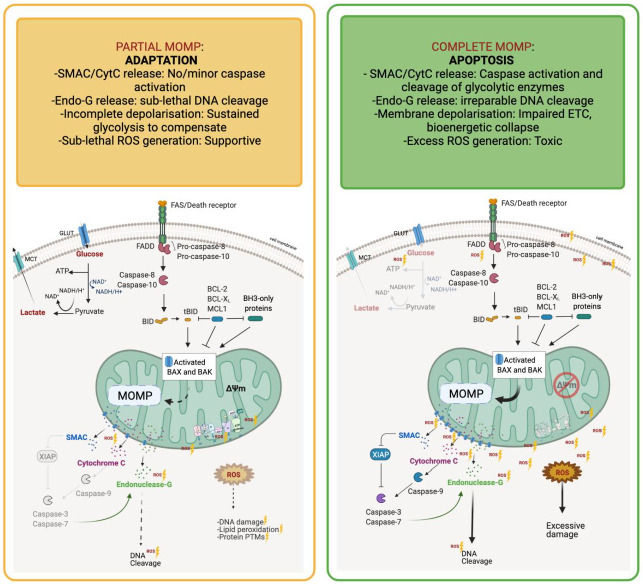Figure 2.
Incomplete MOMP promotes metabolic mechanisms of drug resistance. Mitochondrial Outer Membrane Permeabilisation (MOMP), when complete, results in SMAC and Cytochrome-C release and effective executioner caspase activation, promoting efficient induction of apoptosis. Depolarisation of the mitochondria result in the failure of the ETC and metabolic crisis. Caspases activate Endonuclease-G to facilitate irreparable DNA cleavage, and cleave core glycolytic enzymes, eliminating the ability for glycolysis to compensate for loss of ETC activity resulting in total bioenergetic collapse and toxic ROS generation. Together, this promotes effective cancer cell death. Partial (or incomplete) MOMP (iMOMP) facilitates dampened apoptosis engagement by the mitochondria, limiting caspase activity, and allowing cells to adapt to low-level mitochondrial damage. SMAC and Cytochrome-C are released, yet executioner caspases are not activated. Limited membrane depolarisation occurs, leading to sub-optimal ETC activity and associated sub-lethal (and protumourigeneic) ROS production. Glycolysis remains intact and compensates for the depletion in ETC processes. Thus, partial MOMP facilitates resistance to cell death and metabolic catastrophe in cancer cells, promoting therapy failure.

